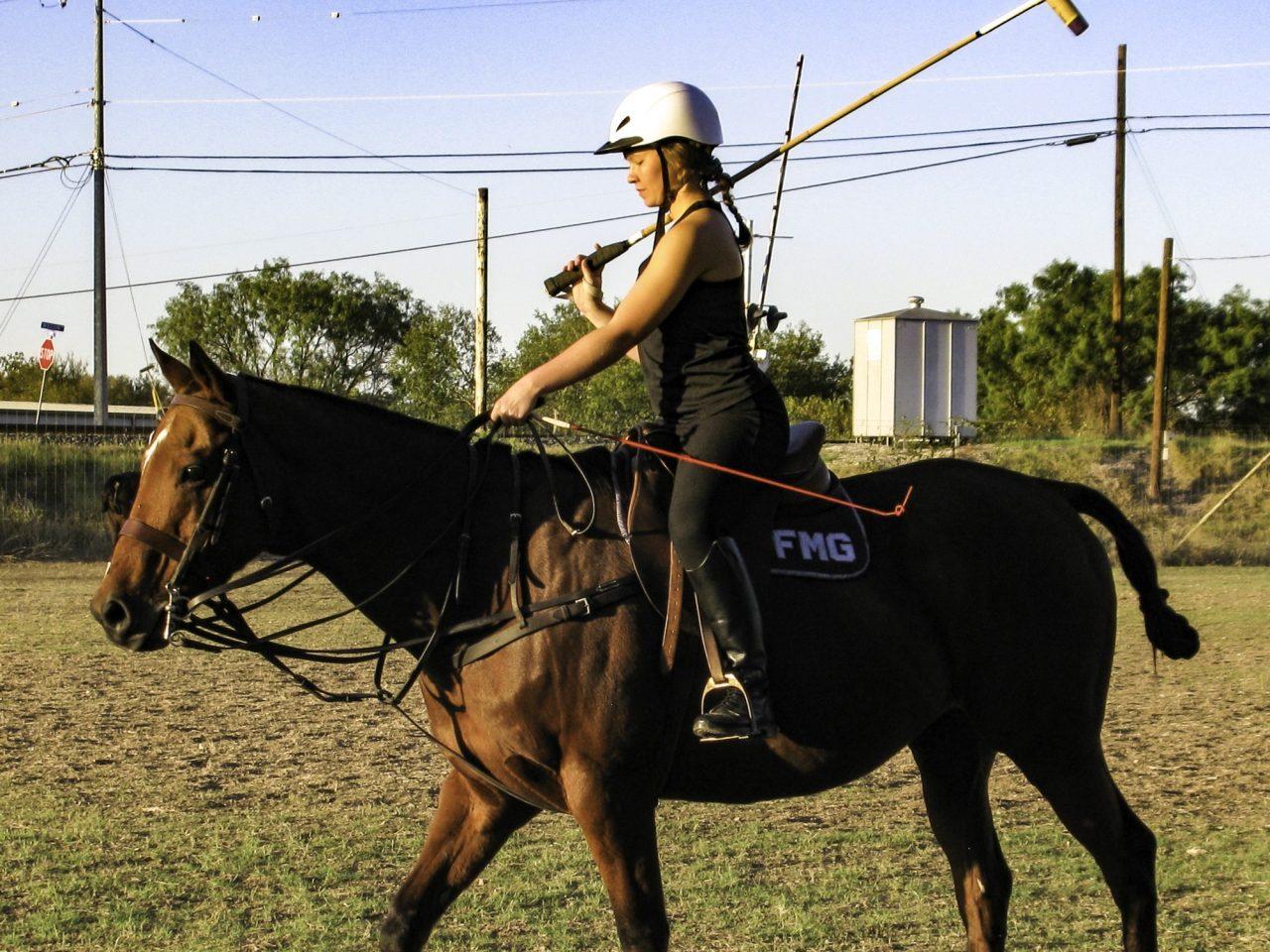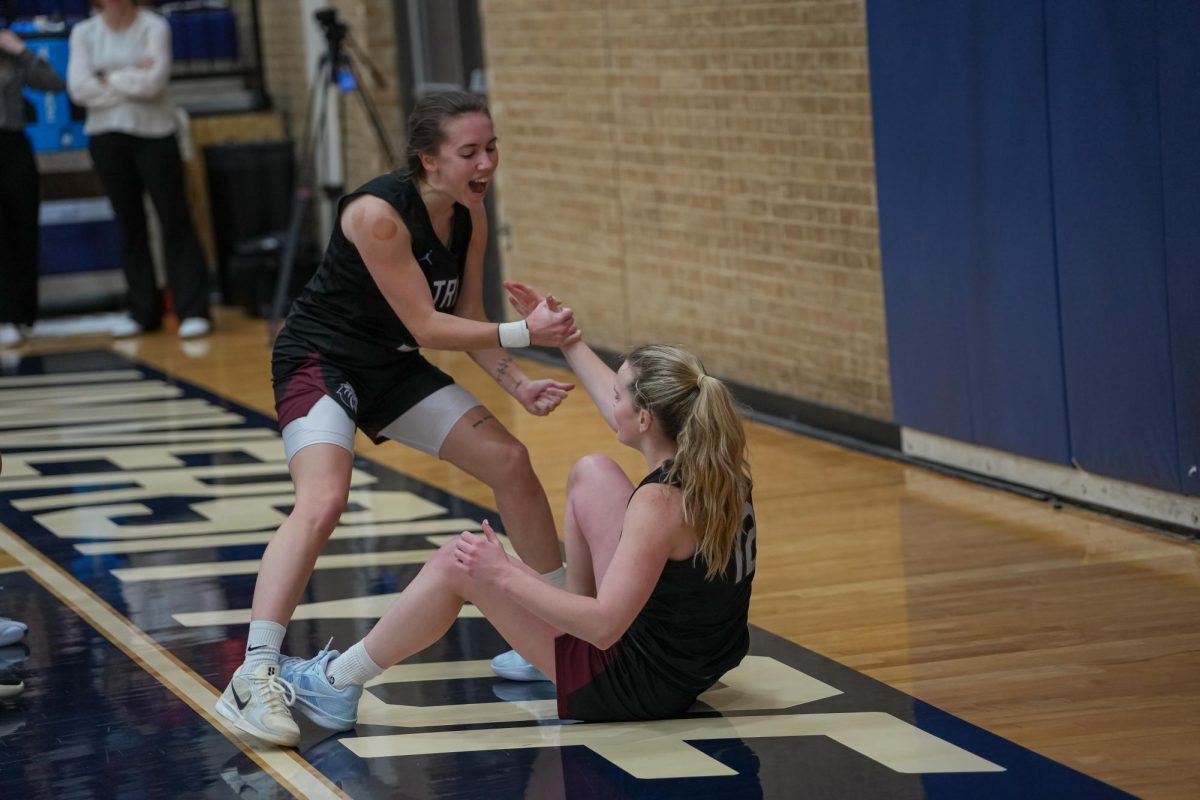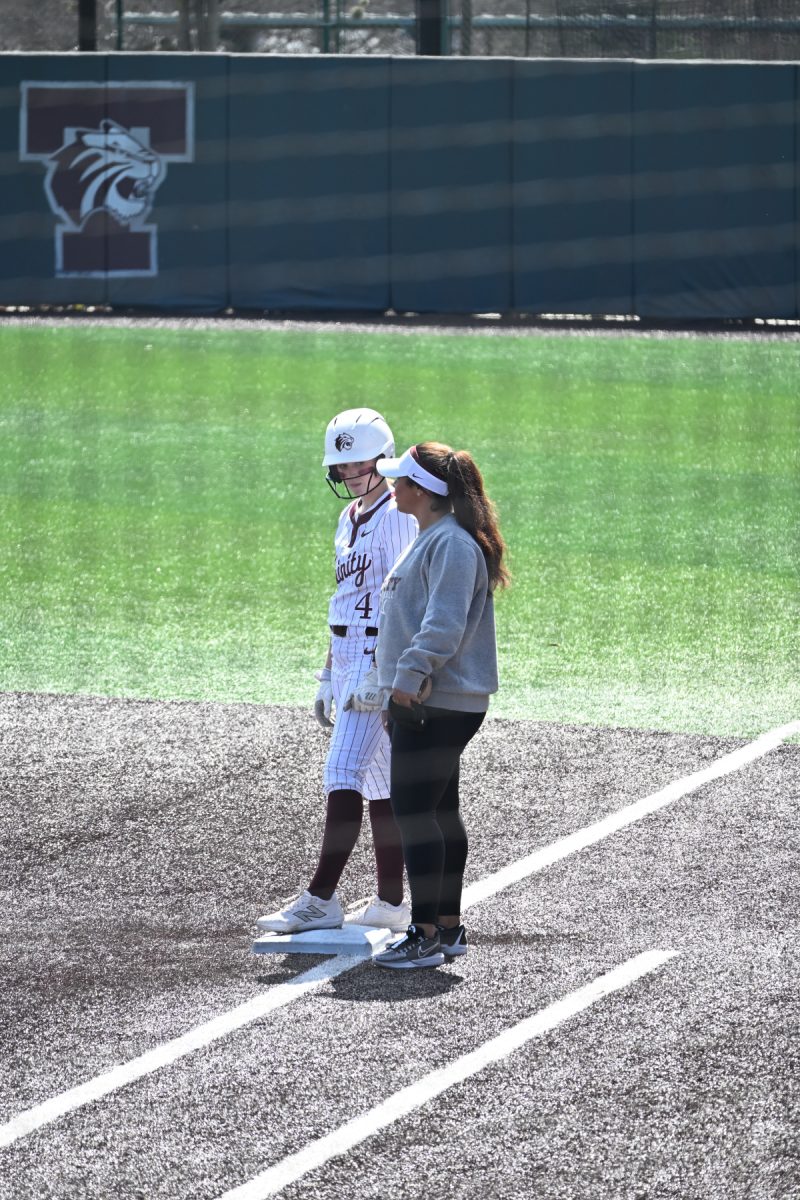Photo by Alejandra Gerlach
By the side of a trailer, a group of Trinity students tack their horses before polo practice. They go through a series of complicated steps, from braiding tails to adjusting the girth of a saddle, all while being careful to let the horse know when they are behind them to not get kicked. A train passes by the polo field, blaring its horn as it goes — the horses don’t react, but they stomp their feet in anticipation of the practice ahead.
This is the scene among the polo team, which is the newest addition to Trinity’s roster of club sports. The team is fielded by the San Antonio Polo Club, which provides horses, mallets and all other necessary equipment to riders on the team as well as practice space and coaches.
“We’re the oldest continuous polo club in the country, but we’ve never had a high school or a college team under San Antonio Polo Club. Many polo clubs across the country do, and the last two years we’ve fielded a high school team and done really well with it,” said assistant coach West Stone, a member of the SA polo club. “We have an [alum] from Trinity named Bill Askins [president of the San Antonio Polo Club], and he was a pro-player here in San Antonio and still plays at 77 years old. He said we ought to get a Trinity team together, so this year, as a board, we’ve decided to field a team.”
Polo is not only a new concept to Trinity athletics but also for the all the members of the team. According to first-year Amy Zeller, she and her teammates, first-years Carly Schneider and Rachel Spain, barely knew what polo was when they put their names on the sign-up sheet.
“We were walking the Trinity sports fair, trying to find, specifically, cheer and volleyball, but then we passed this guy who’s now our coach, Pat, and he was holding this really big stick, and he was yelling, ‘Polo! Join polo,’” Zeller said.
Although Zeller had no experience with polo, she had been an equestrian rider in elementary school, making her one of the only players with any prior experience with horses. Even among the those who had ridden a horse before, none of the 12 players had ever played polo.
“You don’t have to know how to ride to come out. So you learn how to ride, learn how to play the sport. These guys will take about a year, so we’ll actually start playing against other universities next fall,” Stone said.
Stone explained how they focus primarily on learning to ride before adding in different elements of the game.
“We have several kids out here right now who’d never ridden, and now they’re riding really well. We teach them to ride, and the kids who are more advanced, we teach them to play the sport. It’s kind of a big stair-step program,” Stone said.
Zeller commented on the challenge of learning how to use the mallet while simultaneously learning to trot.
“I’m on a horse, which is new in itself, and now I have to use a stick to hit a ball. It’s just a lot of different elements we are trying to combine very quickly, but, at the same time, doing it that quickly kinda speeds up every single [element] because while you’re focusing on riding, you might accidentally get good at hitting, and while you’re focusing [on] hitting you’re going to accidentally get good at riding because you’re doing it subconsciously,” Zeller said.
The difficulty in learning is part of the fun for the athletes as every practice requires learning something new.
“I’m always so excited to go to practice, whereas [in] some of my other sports, you get very bored in a way. You still love the sport, but you’ve learned so much that you can tell what you’re doing wrong. With polo, I don’t know what I’m doing wrong each time, so I like getting to learn,” Schneider said.
The team motto, Schneider said, is “It’s not if you fall off the horse. It’s when.” Because the possibility of falling is ever-present, the coaches make sure to go over how to fall safely to avoid injuries.
“It’s really potentially dangerous, and if you don’t know what you’re doing, extremely dangerous,” Schneider said.
During a practice, head coach Patrick MacLeod broke a rib falling off his horse after the horse was spooked by first-year Sonja Lisowski falling off of her horse. However, according to many of the players, it is rare that a polo horse gets spooked. Polo horses are trained to be incredibly steady and docile, as they must be comfortable with things that normally spook horses, like having their rider swing a mallet near their neck, being in contact with other horses and loud noises.
“You’re playing bumper cars with horses, which you are not supposed to do. You are taught in anything around horses, do not get horses close to each other unless they are very comfortable because they could fight. They could get really, really spooked. This is the opposite,” Schneider said.
The polo team is open to anyone who wishes to join, and with multiple teams, there are many opportunities to play.
“We’ll probably, next year, field a [Women’s] A and B team, what they call an Open team, which can be [men] and [women], and we’ll have some kids coming up that would be a junior varsity team, so to speak, and who are still learning the sport,” Stone said.






